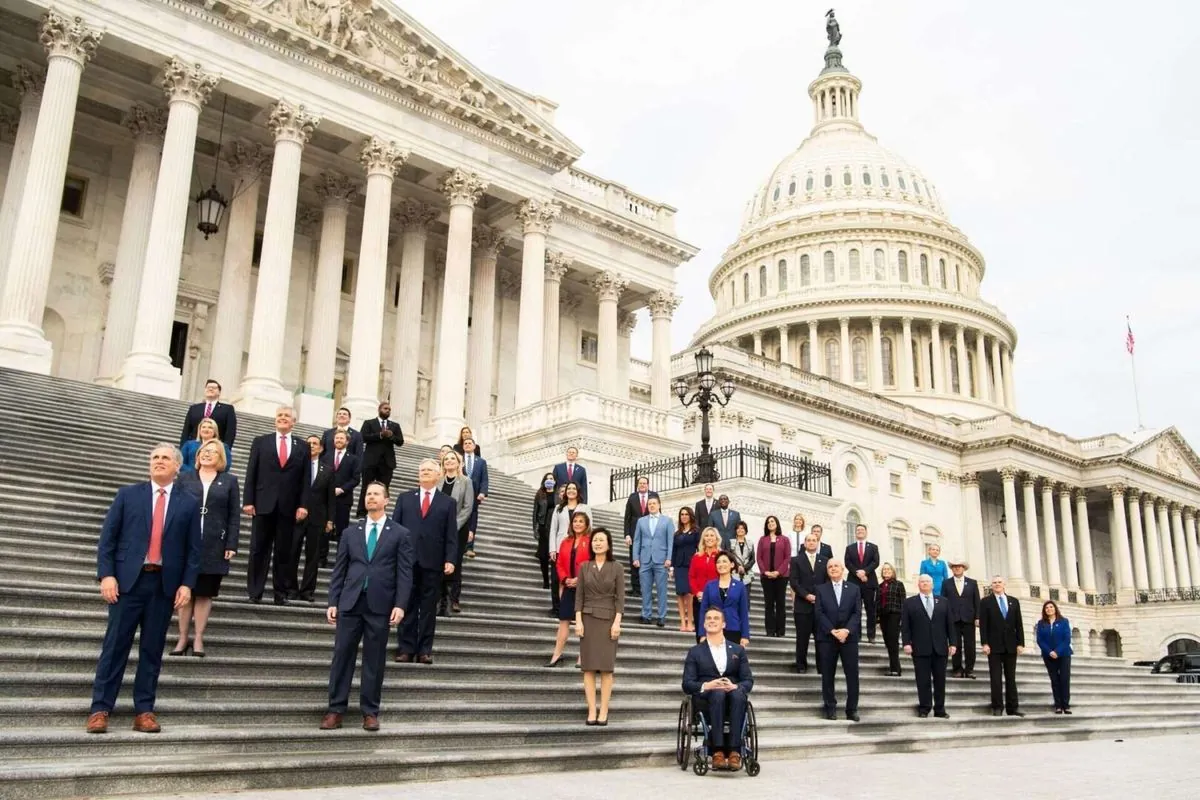As the September 30, 2024 deadline for government funding looms, House Speaker Mike Johnson's plan to prevent a shutdown faces significant challenges. The proposal, which would extend funding until March 28, 2025, has encountered resistance from both Republicans and Democrats, potentially jeopardizing its passage.
Johnson's strategy involves a continuing resolution (CR) coupled with stringent voter citizenship requirements, a move aimed at garnering support from his party's conservative wing. However, this approach has failed to unite the Republican ranks and has drawn criticism from across the political spectrum.
The House of Representatives, with its 435 voting members, has become a battleground for this contentious issue. The Republican majority, which can only afford to lose four votes if all members are present, finds itself in a precarious position. Already, six GOP representatives have voiced their opposition to the plan, potentially derailing it before it reaches the floor for consideration.
"I believe we can fund the government responsibly, and I believe we can do right by the American people and ensure the security of our elections. I defy anybody to give me any logical argument why we shouldn't do that. That's why I'm so resolute about this."
The situation is further complicated by the historical context of government shutdowns. Since 1976, the United States has experienced 21 funding gaps, with the longest lasting 35 days from 2018 to 2019. This history underscores the importance of finding a resolution to the current impasse.
Democrats, led by House Minority Leader Hakeem Jeffries, have accused Republicans of using the threat of a shutdown to advance the conservative Project 2025 agenda. This policy blueprint for a potential Republican administration has become a focal point of Democratic opposition.
The procedural vote scheduled for Tuesday, known as a rule, could effectively block the measure from even being considered. This unusual situation highlights the deep divisions within the Republican party, as rules have traditionally passed along party lines for decades.
Even if Johnson's plan survives the initial hurdle, it faces an uphill battle in the Senate, where Democrats have labeled it a non-starter. President Biden has also indicated he would veto the measure if it reached his desk, further complicating the path forward.
Some Republicans, including members of the powerful Appropriations Committee, prefer a shorter three-month CR that would expire shortly after the November election. This approach would allow lawmakers to address full-year spending bills during the end-of-year "lame duck" session, a concept that dates back to 19th-century British politics.
As the deadline approaches, the pressure mounts on Congress to fulfill its constitutional duty of passing appropriations bills to fund the government. The current situation serves as a stark reminder of the challenges inherent in the U.S. budgetary process and the potential consequences of political gridlock.
